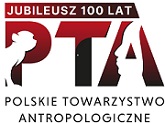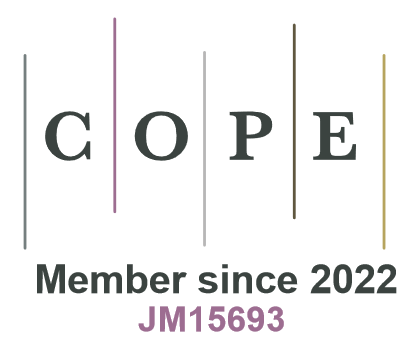Effect of marital distance on birth weight and length of offspring
DOI:
https://doi.org/10.1515/anre-2017-0022Keywords:
heterosis, birth weight, birth length, marital distanceAbstract
Marital distance (MD), the geographical distance between birthplaces of spouses, is considered an agent favouring occurrence of heterosis and can be used as a measure of its level. Heterosis itself is a phenomenon of hybrid vigour and seems to be an important factor regulating human growth and development. The main aim of the study is to examine potential effects of MD on birth weight and length of offspring, controlling for socioeconomic status (SES), mother’s age and birth order. Birth weight (2562 boys and 2572 girls) and length (2526 boys, 2542 girls) of children born in Ostrowiec Swietokrzyski (Poland) in 1980, 1983, 1985 and 1988 were recorded during cross-sectional surveys carried out between 1994-1999. Data regarding the socio-demographic variables of families were provided by the parents. Analysis of covariance showed that MD significantly affected both birth weight and length, allowing for sex, birth order, mother’s age and SES of family. For both sexes, a greater marital distance was associated with a higher birth weight and a longer birth length. Our results support the hypothesis that a greater geographical distance between the birth places of parents may contribute to the heterosis effects in offspring. Better birth outcomes may be one of the manifestations of these effects.
Downloads
References
Barrai I, Cavalli-Sforza LL, Moroni A. 1962. Frequencies of pedigrees of consanguineous marriages and mating structure of the population. Ann Hum Genet 25(4):347–77.
View in Google Scholar
Bodmer WF, Cavalli-Sforza LL. 1976. Genetics, Evolution, and Man. San Francisco: W. H. Freeman and Company.
View in Google Scholar
Cavalli-Sforza LL, Bodmer WF. 1971. The genetics of human populations. San Francisco: W. H. Freeman and Company.
View in Google Scholar
Cnattingius S, Granath F, Petersson G, Harlow BL. 1999. The influence of gestational age and smoking habits on the risk of subsequent preterm deliveries. N Engl J Med 341(13): 943–8.
View in Google Scholar
Crognier E. 1977. Marriages, migrations and the biological population in a Sara tribe from Chad. J Hum Evol 6(2):159–168.
View in Google Scholar
Crow JF. 1998. 90 Years Ago: The Beginning of Hybrid Maize. Genetics 148(3):923–8.
View in Google Scholar
de Araujo AM, Salzano FM. 1975. Parental characteristics and birthweight in a Brazilian population. Hum Biol 47(1):37–43.
View in Google Scholar
Dell Inc. 2016. Dell Statistica (data analysis software system), version 13. software.dell.com.
View in Google Scholar
Dobzhansky T. 1970. Genetics of the Evolutionary Process. New York, London: Columbia University Press.
View in Google Scholar
Fishberg M. 1905. Materials for the physical anthropology of the Eastern European Jews. Ann NY Acad Sci 16(6):155–299.
View in Google Scholar
Fix AG. 1999. Migration and Colonization in Human Microevolution. Cambridge: Cambridge University Press.
View in Google Scholar
Friedlaender JS. 1971. Isolation by Distance in Bougainville. Proc Natl Acad Sci USA 68(4):704–7.
View in Google Scholar
Heaman M, Kingston D, Chalmers B, Sauve R, Lee L, Young D. 2013. Risk factors for preterm birth and small-for-gestational-age births among Canadian women. Paediatr. Perinat. Epidemiol 27(1):54–61.
View in Google Scholar
Karim E, Mascie-Taylor CG. 1997. The association between birthweight, sociodemographic variables and maternal anthropometry in an urban sample from Dhaka, Bangladesh. Ann Hum Biol 24(5):387–401.
View in Google Scholar
Khoshnood B, Wall S, Lee KS. 2005. Risk of low birth weight associated with advanced maternal age among four ethnic groups in the United States. Matern Child Health J 9(1):3–9.
View in Google Scholar
Kimura M, Weiss GH. 1964. The stepping stone model of population structure and the decrease of genetic correlation with distance. Genetics 49(4):561–76.
View in Google Scholar
Kozieł S, Danel DP, Zaręba M. 2011. Isolation by distance between spouses and its effect on children’s growth in height. Am J Phys Anthropol 146(1):14–9.
View in Google Scholar
Lyngdoh T, Kinra S, Shlomo Y, Reddy S, Prabhakaran D, Smith G, Ebrahim S, Indian migration study group. 2006. Sib-recruitment for studying migration and its impact on obesity and diabetes. Emerg Themes Epidemiol 13(3):2.
View in Google Scholar
Mascie-Taylor CG, Little MA. 2004. History of migration studies in biological anthropology. Am J Hum Biol 16(4): 365–78.
View in Google Scholar
Mascie-Taylor CG. 1986. Marital distances, age at marriage and husband’s social group in a contemporary Cambridge sample. Ann Hum Biol 13(5): 411–5.
View in Google Scholar
Morton NE. 1977. Isolation by distance in human populations. Ann Hum Genet 40(3):361–5.
View in Google Scholar
Penn G, Owen L. 2002. Factors associated with continued smoking during pregnancy: Analysis of socio-demographic, pregnancy and smoking-related factors. Drug Alcohol Rev, 21(1):17–25.
View in Google Scholar
Pölziberger E, Hartmann B, Hafner E, Stümpflein I, Kirchengast S. 2017. Maternal height and pre-pregnancy weight status are associated with fetal growth patterns and newborn size. J Biosoc Sci 49(3):392–407.
View in Google Scholar
Reddy PG. 1988. Consanguineous marriages and matrimonial distance: a study among three South Indian caste groups. Biol Soc 5(4):173–8.
View in Google Scholar
Schmitt LH, Harrison GA, Mascie-Taylor CG. 1991. Marital distance and child variability. Ann Hum Biol 18(2):121–6.
View in Google Scholar
Shah PS. 2010. Paternal factors and low birthweight, preterm, and small for gestational age births: a systematic review. Am J Obstet Gynecol, 202(2):103–23.
View in Google Scholar
Shull GH. 1914. Duplicate genes for capsule-form in Bursa bursa-pastoris. Mol Gen Genet 12(1): 97–149.
View in Google Scholar
Spencer N, Logan S. 2002. The treatment of parental height as a biological factor in studies of birthweight and childhood growth. Arch Dis Child 87(3):184–7.
View in Google Scholar
Szklarska A, Lipowicz A, Lopuszanska M, Bielicki T, Koziel S. 2008. Biological condition of adult migrants and nonmigrants in Wrocław, Poland. Am J Hum Biol 20(2):139–45.
View in Google Scholar
Verheij RA, van den Mheen HD, Bakker DH, Groenewegen PP, Mackenbach JP. 1998. Urban-Rural Variations in Health in the Netherlands: Does Selective Migration Play a Part? J Epidemiol Community Health 52(8):487–93.
View in Google Scholar
Vielwerth SE, Jensen RB, Larsen T, Greisen G. 2007. The impact of maternal smoking o fetal and infant growth. Early Hum Dev 83(8): 491–5.
View in Google Scholar
Wolański N, Jarosz E, Pyżuk M. 1970. Heterosis in man: growth in offspring and distance between parents’ birthplaces. Soc Biol 17(1):1–16.
View in Google Scholar
Wright S. 1943. Isolation by distance. Genetics 28(2): 114–38.
View in Google Scholar
Wright S. 1977. Evolution and the Genetics of Populations. Chicago, London: The University of Chicago Press.
View in Google Scholar
Downloads
Published
How to Cite
Issue
Section
License

This work is licensed under a Creative Commons Attribution-NonCommercial-NoDerivatives 4.0 International License.








